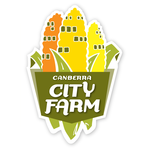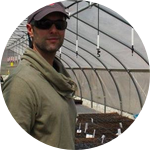About This Project
This project explores how aesthetics influences the uptake of environmentally-friendly practices in the development of urban environments. Through case studies of selected Australian cities, it seeks to provide insight into the way that those concerned to promote sustainable lifestyles might mobilize the aesthetic dimensions of how people 'experience' sustainability and addresses the currently narrow focus on the socio-political motivators for environmentally sustainable behavior.
Ask the Scientists
Join The DiscussionWhat is the context of this research?
This project will explore how aesthetics and aesthetic criteria influence the uptake of environmentally-friendly practices in the development of urban environments. While much has been said about the need for science to redress environmental problems, less is understood about how what we know about the looming crisis translates into an art of living – sustainable practices, lifestyle choice, techniques of sustainable living and the like. To the extent that we do speculate on the translation of knowledge into practices and techniques, politics and morality are generally seen as the key mediators – we need to be politically motivated at a societal level and morally driven at an individual level if we are to make the necessary adjustments to our ways of life.
What is the significance of this project?
That sustainable living is a pressing problem has become a truism of contemporary social science. The Australian Government recognises the development of sustainable styles of living as a strategic national priority. Yet discourses on ways to foster environmentally sustainable modes of living characteristically express a frustration: how is it possible to motivate people to live in an environmentally sustainable manner when the drive to consume is so strong in contemporary societies? This project is innovative in addressing head on one of the main drivers of the tight nexus of environmentalism and consumption – namely, desire. Its focus on the question of aesthetics is also innovative, broadening debates that have thus far focused on scientific, political and moral forms of knowledge.
What are the goals of the project?
The research will conduct qualitative research, involving interviews with community gardeners, city farmers, consumers, as well as key informants at city councils. This project seeks to contribute to an understanding of how the promotion of environmentally sustainable lifestyles might deploy the aesthetic motivators (pleasures, desires, affects and sensations) that contemporary capitalism has mobilized so well, often to environmentally unsustainable ends. Rather than understanding the desire to consume as a hindrance to environmental practice, the project will use qualitative methods to explore the production of desire and its relationship to both environmentally sustainable and unsustainable lifestyles. It will thus inform future directions in encouraging sustainable lifestyles.
Budget
Funds for airfares and ground transport, accommodation and sustenance are required for primary data collection at case study sites in Australia, which will be comprised of large (Sydney), medium (Hobart) and small (Tullimbar) urban areas. Comparison of these areas offers an interesting juxtaposition of experiences and ideas of urban sustainability and lifestyle choices. Sydney is a 'global city' with a more high consumption and faster-paced lifestyle. Hobart is often described as having a reputation for more sustainable lifestyle choices than Sydney. Hobart is also largely politically represented by the Green Party. Tullimbar is a community developed as a 'smart growth' and 'new urbanism' area in the wider urban district of Illawarra. We will conduct qualitative interviews with key informants at selected locations, where activities related to environmental and social space have been identified by the Researchers.
Endorsed by
Meet the Team
Team Bio
The research team, Alec Thornton, Scott Sharpe & Paul Tranter, are colleagues in Geography at the University of New South Wales (Australia). They have conducted numerous research projects and published widely on issues concerning various aspects of sustainability, including transport, child-friendly cities, social equity and rural and urban livelihoods.
Alec Thornton
Alec Thornton is a Senior Lecturer in Geography at The University of New South Wales, Australia. Originally from Massachusetts, USA, he studied in the UK, conducted his PhD research in South Africa and a postdoctoral fellowship in New Zealand. He has since carried out further research on rural urban livelihoods and social change in Zambia, Sierra Leone, Fiji and Samoa. His research largely centers on community-based development, rural and urban livelihoods in developing and developed countries. He has published numerous peer-reviewed journal articles and book chapters on these issues. He is currently writing a book 'Space and food in the City' for Palgrave MacMillan, which will explore city-community partnerships and local food production for social equity and food justice in developed and developing countries.
Lab Notes
Nothing posted yet.
Project Backers
- 3Backers
- 1%Funded
- $25Total Donations
- $8.33Average Donation




